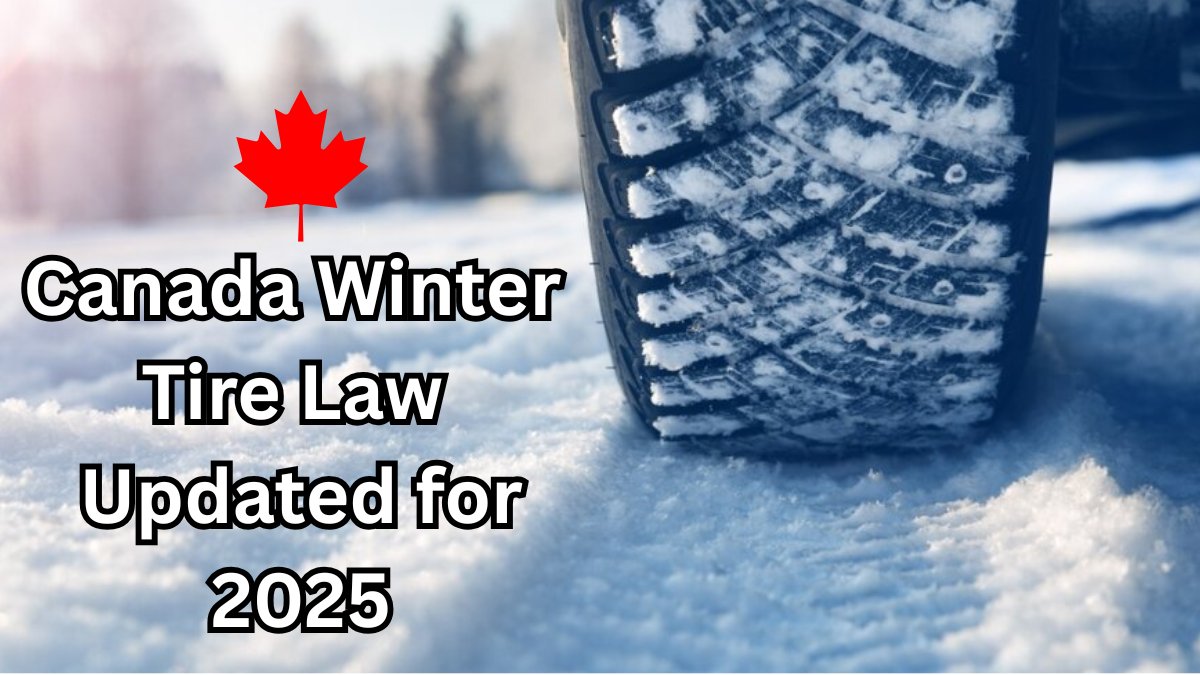As temperatures drop and snow blankets the roads, winter tires become more than just a suggestion — they can be lifesavers. In 2025, Canada has updated its winter tire laws to further emphasize vehicle safety and reduce cold-weather road accidents. With the Canada Winter Tire Rules Update, several provinces have made winter tires mandatory by law during specific months.
Whether you’re a seasoned driver or a newcomer in Canada, here’s what you need to know about the latest Tire Law Canada update and which provinces are now enforcing these rules.

Why This Update Matters
Every winter, Canadian roads become slippery, icy, and hazardous. Ordinary all-season tires simply can’t handle the harsh conditions in most regions. Winter tires, built with softer rubber and deeper treads, offer better traction, shorter braking distances, and a safer driving experience.
The Canada Winter Tire Rules Update for 2025 has been introduced to:
-
Improve overall road vehicle safety
-
Reduce traffic accidents during snow and ice events
-
Make rules more consistent across provinces
-
Raise awareness about the importance of winter tire use
Provinces Where Winter Tires Are Now Mandatory in 2025
Below is a breakdown of provinces where winter tires are now legally required as per the updated 2025 regulations:
| Province/Territory | Winter Tire Requirement (2025) | Dates Enforced |
|---|---|---|
| Quebec | Mandatory | December 1 – March 15 |
| British Columbia | Mandatory on select highways | October 1 – April 30 |
| Ontario | Not mandatory, but recommended | N/A |
| New Brunswick | Mandatory (NEW in 2025) | December 1 – March 31 |
| Nova Scotia | Mandatory (NEW in 2025) | December 1 – March 31 |
| Prince Edward Island | Recommended | N/A |
| Newfoundland & Labrador | Recommended | N/A |
| Alberta, Manitoba, Saskatchewan | Not mandatory | N/A |
Note: While not every province enforces mandatory tire usage, many offer insurance discounts or safety incentives for those who equip their vehicles with certified winter tires.
What Qualifies as a Winter Tire?
To comply with the updated Tire Law Canada, your tires must meet certain criteria:
-
Have the Three-Peak Mountain Snowflake (3PMSF) symbol
-
Minimum tread depth of 3.5mm
-
Specifically designed for winter conditions (not all-season)
Benefits of Following the Canada Winter Tire Rules Update
Still debating whether to invest in winter tires? Here’s what you’ll gain:
-
Better traction on snow and ice
-
Improved braking and cornering
-
Enhanced overall vehicle safety
-
Possible insurance discounts
-
Peace of mind during long winter drives
Tips for Drivers This Winter
Here are a few quick pointers to help you stay compliant and safe:
-
Switch to winter tires before the deadline in your province
-
Store your summer tires properly to extend their life
-
Regularly check tire pressure—cold weather can cause it to drop
-
Consider installing tires on all four wheels for balanced handling
Frequently Asked Questions (FAQs)
1. Is it illegal to drive without winter tires in provinces where it’s not mandatory?
No, but it’s strongly discouraged. You might not be breaking the law, but you could be compromising your safety and others on the road.
2. What happens if I don’t follow the Canada Winter Tire Rules Update?
In provinces like Quebec and British Columbia, you may face fines, vehicle impoundment, or insurance issues if caught driving without winter tires during the required period.
3. Are all-season tires acceptable under the Tire Law Canada?
No. Only tires with the 3PMSF symbol are accepted in provinces where winter tires are mandatory.
4. Can I get insurance discounts for using winter tires?
Yes. Many insurance companies across Canada offer discounts (up to 5%) for installing winter tires. Check with your provider.
Final Thoughts
The Canada Winter Tire Rules Update for 2025 reflects a national shift toward safer winter driving practices. With some provinces moving from recommendations to full legal enforcement, it’s important to stay informed and prepared.
Not only will proper winter tires keep you on the right side of the law — they could also save your life.
Click here to learn more
Pari is a passionate writer known for captivating stories that blend imagination and reality. Inspired by travel, history, and everyday moments, Pari crafts narratives that resonate deeply with readers.